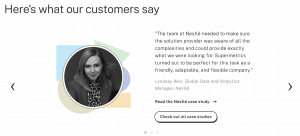
Trust is in jeopardy.
At least according to Edelman’s “Trust Barometer 2016,” which reports a breakdown in trust of institutions – especially government – by the public across the world. More specifically, it’s the masses that are most distrustful, as opposed to the “elite” informed public, and this has opened a yawning gap amongst global populations.
Across the world, sixty percent of countries are majority “distrusters” of government, media, business and NGOs. The U.S. presents the largest divide amongst the trusting informed public and distrusting mass populations, with a 20-point gap separating these two types of citizens.
Of course we have seen this distrust play out in the electoral earthquakes that Brexit and the Trump victory represent, as well as the rise of populist movements across the world. According to Edelman, its data has been proven out by global events showing that power centers have shifted from elites to the distrustful masses, fueled by rising income inequality and skepticism that government can make life better for those who feel left behind.
But the positive sign amidst this worrisome trend of distrust is the institution that has gained the biggest increase in trust amongst both the general public and the more informed public: business. People see business as the best hope for improving social and economic conditions in their communities, and they respond positively to CEOs who take on social issues as a part of their corporate brand. Edelman believes that business has the best chance at bridging the trust gap while still fulfilling its mandate to create value.
“Trust inequality has many negative consequences,” Edelman reports, “but it also presents an opportunity for businesses that want to achieve differentiation and sustained growth.”
The Barometer shows that employee advocacy and engagement rises when CEOs are involved in social issues, increasing an employee’s motivation to perform by 22 points; escalating an employee’s willingness to stay working for the company by 22 points; and motivating an employee to recommend the company as an employer by 25 points.
Similarly, according to CECP’s Giving in Numbers report for 2016, corporate societal engagement has shifted “from business case to business imperative, with companies and shareholders recognizing the impact community investments have on financial performance,” as observed by Carmen Perez, Director, Evaluation and Data Insights for CECP. “Through our survey results, we can gauge that companies are seeing the results of their commitments resonate through all parts of the business: greater volunteer participation, increased interest from new stakeholders, and an indicator of financial performance.”
The CECP report also showed that companies saw building trust with consumers and other stakeholders as a goal of their societal engagement programs, with 55% of companies using increased trust as a benchmark of success for their investments in the community.
“Less than half of the mass population believe they will be better off in five years than they are today,” notes Ben Boyd in the Barometer report. “This heralds a tremendous need…and opportunity…for business to reconsider what society expects and to recognize the new relationship between societal action and trust. In order for business to succeed, it must ultimately earn this trust through societal actions that create value.”
How can your business respond to these trends and amplify employee engagement through increased public trust? By actively changing the structure of your business to capitalize on the clear-cut competitive advantage of societal investment, which is exactly what CECP reports that many companies are now doing.
As we can see in the Giving in Numbers survey, some of the business-boosting steps that companies are taking to capitalize on their social impact strategies also lends itself naturally to increasing public trust and employee engagement. These are actions which every company should consider as a part of its 2017 impact strategy:
Download our free report: New Trends on Public Trust Reveal Opportunities for Corporate Social Impact
Digital & Social Articles on Business 2 Community
(85)





